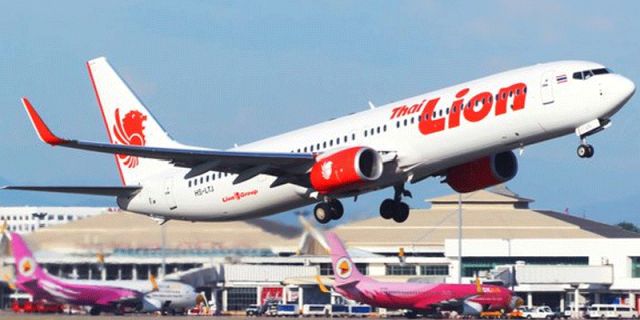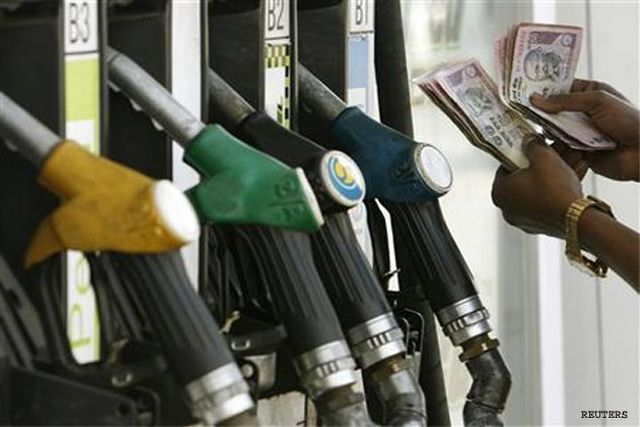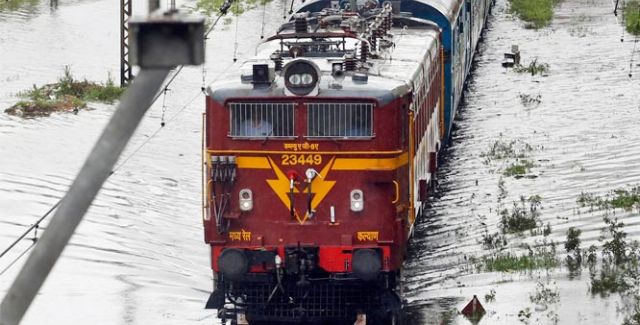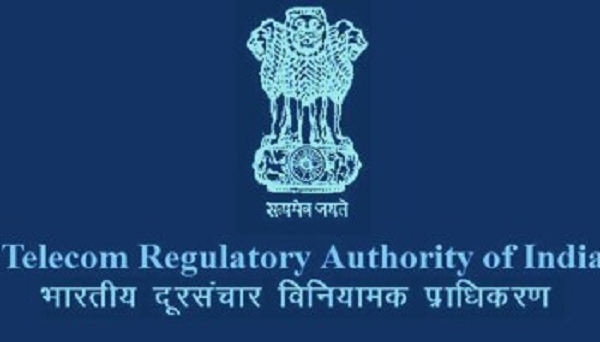
by Editor | May 25, 2021 | Corporate, Corporate Governance, Economy, News, Politics
 Mumbai : The Indian Railways on Monday flagged off the country’s first air-conditioned suburban local train for Mumbai commuters, 150 years after the first suburban local was hauled by a steam engine in 1867, officials said.
Mumbai : The Indian Railways on Monday flagged off the country’s first air-conditioned suburban local train for Mumbai commuters, 150 years after the first suburban local was hauled by a steam engine in 1867, officials said.
The Christmas and the pre-New Year bonanza saw the first AC local’s maiden run for the media, officials, some political party activists and commuters between Borivali and Churchgate on the Western Railway.
Though a public holiday, there were several hundreds of curious and wide-eyed commuters who crowded the Borivali station and other stations en route to gawk at the new wonder, which will start full-fledged operations from January 1, 2018, with 12 daily services.
According to the Western Railway chief spokesperson Ravinder Bhakar, six return services (total 12) shall be operated on the suburban sector at regular intervals on all weekdays, with the weekend kept free for maintenance purposes.
As per current plans, of these 12 daily services, eight will be operated as ‘fast trains’ on the congested Churchgate-Virar (Palghar) sector, three between Churchgate-Borivali, both with halts only at major stations, while one will ply as a slow service halting at all stations between Mahalaxmi-Borivali.
The Western Railway has also announced an introductory fare to lure commuters to the new, ‘cool’ style of commuting, with the fare to be 1.2 times the cost of a first class one-way regular ticket, and later the fare will be 1.3 times.
There will be weekly, fortnightly and monthly season tickets available at 5.0 times, 7.5 times and 10 times the fare of regular first class ticket rates, for the time-being, besides a 5 per cent GST and other applicable charges.
—IANS

by Editor | May 25, 2021 | Business, Corporate, Corporate Buzz, Large Enterprise

Thai Lion Air
Mumbai : Budget carrier Thai Lion Air launched flights connecting Mumbai with Don Mueang International Airport in Bangkok on Thursday, an official said.
The inaugurated flight arrived here at 5.40 a.m.
Initially, the carrier will operate two flights a week with Boeing 737 aircraft with plans to increase the frequency to thrice a week, said an official of the Chhatrapati Shivaji Maharashtra International Airport.
Thai Lion Air becomes the latest budget airline offering cheaper options for flyers from Mumbai to South East Asia.
—IANS

by Editor | May 25, 2021 | Business, Commodities, Commodities News, Corporate, Corporate Governance, Large Enterprise
 New Delhi : The Indian basket of imported crude oils gained nearly $3.50 a barrel during last week even as petrol prices in the country touched their highest levels since Prime Minister Narendra Modi assumed office three years ago, official data showed on Monday.
New Delhi : The Indian basket of imported crude oils gained nearly $3.50 a barrel during last week even as petrol prices in the country touched their highest levels since Prime Minister Narendra Modi assumed office three years ago, official data showed on Monday.
The Indian basket, comprising 73 per cent sour-grade Dubai and Oman crudes, and the balance in sweet-grade Brent, closed trade on the weekend on Friday at $53.63 per barrel, according to the Petroleum Ministry. The oil basket had gained over a dollar at the start of last week on Monday to close at $51.34 for a barrel of 159 litres.
Meanwhile, under the daily revision of fuel prices, petrol in Mumbai on Monday cost Rs 79.41 a litre, breaching the level it last touched in August 2014.
Petrol price was hiked by 13 paise a litre and diesel by 25 paise per litre, applicable from 6 a.m. on Monday. Petroleum products do not come under the Goods and Services Tax (GST) and prices vary at locations according to state taxes.
On Monday, petrol per litre cost Rs 70.30 in Delhi, Rs 73.05 in Kolkata and Rs 72.87 in Chennai.
Similarly, diesel price on Monday was Rs 58.62 in Delhi, Rs 61.27 in Kolkata, Rs 62.26 in Mumbai and Rs 61.73 in Chennai.
Earlier this month, Petroleum Minister Dharmendra Pradhan said the dynamic pricing regime would continue despite petrol prices going up by over Rs 7 per litre since the scheme was introduced pan-India from mid-June.
He said dynamic pricing ensures that the benefit of even the smallest change in international oil prices can be passed down the line to the dealers and the end-users.
“Daily revision in prices is good. When we started daily revisions on June 16, rates dropped in the first fortnight. Thereafter, it has increased mainly because of rise in global oil prices,” he said.
Daily revision allows any fall in international oil rates to be passed on to consumers immediately rather than having to wait for 15 days as in the old system, he added.
“Should prices be hiked by Rs 2.50 or Rs 3 per litre in one go or they should be spaced out in small doses,” he asked.
Earlier, the state-run oil marketing companies used to review and revise retail fuel prices every fortnight on the basis of global crude oil prices, while the revision took effect from midnight.
Dynamic fuel pricing is followed in many developed countries and India opted for it as a response to the recent volatility in global crude oil prices.
The basket of crude oils of the 13-nation Organisation of Petroleum Exporting Countries (OPEC) breached the psychologically-important $50-a-barrel-mark also last week, to close at $50.36 a barrel on September 4. As per latest data, the OPEC basket closed on Friday at $52.53.
Last month, two of OPECs biggest members — Saudi Arabia and Iraq — expressed their commitment to abide by an agreement to cut oil production that was signed earlier between OPEC and 10 other nations.
—IANS

by Editor | May 25, 2021 | News, Politics
 By Quaid Najmi,
By Quaid Najmi,
Mumbai : Torrential rains lashed Mumbai, Thane, Palghar, Raigad and other parts of Maharashtra for the fourth consecutive day on tuesday, severely affecting normal life and paralysing the lifelines — local train and bus services — in the state capital and leading the state government and civic authorities to sound a high alert.
Expressing concern over the rain situation in Mumbai, Prime Minister Narendra Modi urged the people of the state to “stay safe” and take all essential precautions while speaking to Chief Minister Devendra Fadnavis to take stock of the developments.
“The centre assures all possible support to the Maharashtra Government in mitigating the situation due to heavy rains in parts of the state,” Modi said in a series of tweets.
The BrihanMumbai Municipal Corporation (BMC) said that in one hour, Mumbai recorded a staggering 70 mm rainfall, while it touched 100 mm between 8.30 a.m. and 1 p.m.
Giving the figures till 3 p.m., the BMC said Mumbai received 106 mm rainfall in about six hours, while the eastern suburbs got 78.5 mm and the western suburbs notched 85 mm during the same period.
The state government has requisitioned the services of five disaster management teams, including three from Pune, and a holiday has been declared for all college and schools on Wednesday, said Education Minister Vinod Tawde.
The India Meteorological Department has forecast aceheavy to very heavy rains” for Mumbai and entire Konkan region during the next 24 hours owing to a “low pressure” area over south Gujarat-Madhya Pradesh, which was expected to be upgraded to a “deep depression”.
The BMC appealed to people not to step out of their home unless absolutely necessary, while the entire civic force — Mumbai Police, Fire Brigade and other agencies — were on high alert to combat the situation.
Since Tuesday morning, many parts of Mumbai and suburbs were inundated with up to three to four feet of water on the highways, main and arterial roads, bylanes, housing complexes, railway stations and even the Mumbai Airport.
However even with more than 180 trees and half a dozen walls collapsing in different parts of the city, flooding and waterlogging, there were no casualties.
Around 6.30 a.m. the rains triggered a landslide in adjoining Thane district, leading to derailment of 10 coaches of the Nagpur-Mumbai Duronto Express but there were no casualties.
The torrential rains have hit the immersion ceremonies on the fifth day of the Ganeshotsav on Tuesday, with many marquees deciding to postpone it by two days.
Suburban local trains were massively hit with disruption in services due to flooding on the railway tracks at several places.
The Central Railway mainline was completely suspended for over four hours, Harbour Line was completely down, the Western Railway worked slowly and erratically, besides disruptions on the Konkan Railway.
Lakhs of commuters including students, were stranded in trains, railway stations or at bus stops. Many failed to reach their destinations and were compelled to return to their homes on foot, walking scores of kilometres from various points in the city.
All the gurudwaras, several Hindu and Jain temples, Ganeshotsav marquees, mosques and dargahs, churches, NGOs, charitable organisations, housing complexes and individuals made arrangements to offer food and beverages to the weary and stranded commuters, and arrangements to rest for the night.
Waterlogging has been reported from Dahisar, Borivali, Kandivali, Malad, Andheri, Jogeshwari, Vile Parle, Santacruz, Bandra, Matunga, Dadar, Elphinstone, Mumbai Central, Mazagaon, Lalbaug, Parel, Sion, Wadala, Kurla, Bhandup and other areas.
The rains affected normal operations at Chhatrapati Shivaji Maharaj International Airport with flights getting delayed by around 35 minutes mainly on account of low visibility.
Seven incoming flights were made to go around till landing permission was granted while three flights were diverted, though operations continued.
Domestic and international passengers bound for the airport to catch their flights faced huge problems in reaching on time due to massive traffic snarls on the highways and main roads.
Mumbai IMD head K.S. Hosalikar said that in three hours since 8.30 a.m., Mumbai suburbs recorded a whopping 86 mm of rains, while Colaba recorded around 16 mm of rains.
“It’s not a July 26, 2005 type situation as the cloud cover over Mumbai is not that thick. However, we have issued weather warnings to the disaster units of Maharashtra government and the BrihanMumbai Municipal Corporation,” Hosalikar told media persons.
He said the IMD has forecast heavy to very heavy rains for at least the next 24 hours all over Maharashtra, especially over coastal North Konkan, Mumbai and other parts of the state.
The IMD warning says “intense precipitation likely to occur over Mumbai city, suburbs, Dahanu and Raigad during the latter part today (Tuesday)”.
In Mumbai areas which recorded the heaviest rains are: Matunga 253 mm, Parel 230 mm, Wadala 260mm, Bandra 210 mm, Vile Parle and Santacruz A212 mm, Worli -235, and Kurla 208 mm, said a BMC Disaster Control official.
(Quaid Najmi can be contacted at q.najmi@ians.in)
—IANS

by Editor | May 25, 2021 | Business, News
 New Delhi:(IANS) Most of the telecom service providers, except Airtel 2G and 3G and Vodafone 2G, in the Mumbai circle have failed to meet call drop rate benchmark of less than 2 per cent, said sector regulator TRAI in a statement on Tuesday after conducting a drive test.
New Delhi:(IANS) Most of the telecom service providers, except Airtel 2G and 3G and Vodafone 2G, in the Mumbai circle have failed to meet call drop rate benchmark of less than 2 per cent, said sector regulator TRAI in a statement on Tuesday after conducting a drive test.
IMRB International has carried out independent drive test for cellular mobile telephone service in Mumbai service area between May 10-13, the statement said.
“Most operators (in Mumbai circle), excepting Airtel 2G/3G and Vodafone 2G, are not meeting the under 2 per cent call drop rate benchmark,” said the Telecom Regulatory Authority of India (TRAI) statement.
It also stated that most telcos in Mumbai met the call set-up success rate benchmark of over 95 per cent, except MTNL 2G and 3G and Reliance Communications 2G.

 Mumbai : The Indian Railways on Monday flagged off the country’s first air-conditioned suburban local train for Mumbai commuters, 150 years after the first suburban local was hauled by a steam engine in 1867, officials said.
Mumbai : The Indian Railways on Monday flagged off the country’s first air-conditioned suburban local train for Mumbai commuters, 150 years after the first suburban local was hauled by a steam engine in 1867, officials said.



